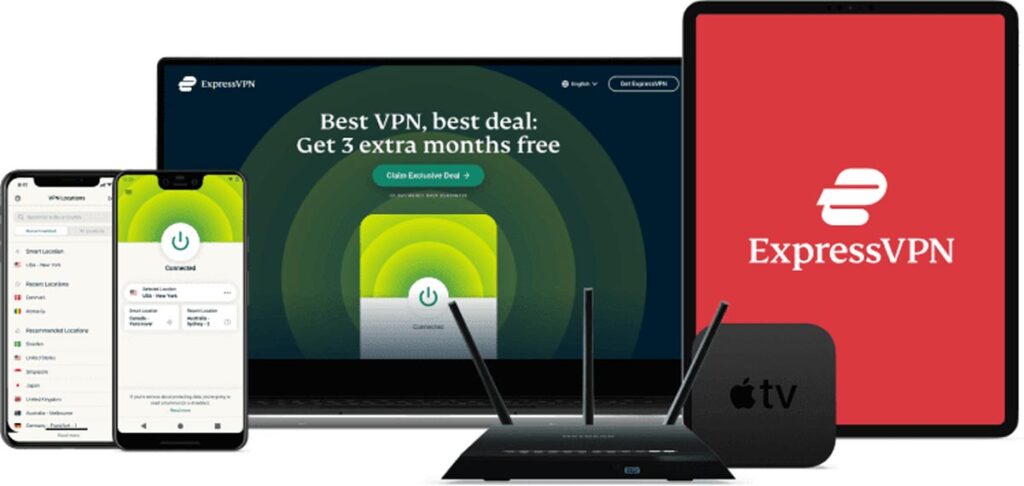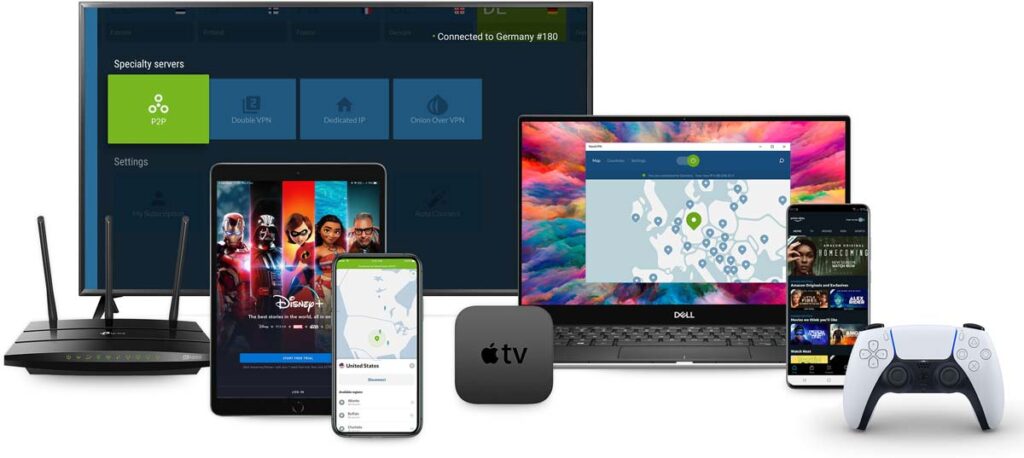How to Hide From Trackers, Advertisers, and ISPs with a VPN In 2025

Imagine you’re walking through a mall, and every store you pass silently notes what you’re wearing, who you’re with, what catches your eye, and how long you linger. Now imagine this happening every time you’re online. Creepy, right?
Welcome to the digital world of 2025, where trackers, advertisers, and even your Internet Service Provider (ISP) are silently watching your every move.
Whether it’s for profit, surveillance, or manipulation, your online behavior is constantly monitored—unless you fight back.
That’s where a VPN (Virtual Private Network) comes into play.
A VPN acts like your personal invisibility cloak—masking your online identity, encrypting your internet traffic, and stopping prying eyes from profiling you. It’s one of the most powerful tools you can use to take back control of your digital life.
Let’s explore how a VPN helps you hide from trackers, advertisers, and ISPs—and why it’s no longer optional in today’s hyper-tracked world.
How to Use a VPN to Stay Private – Step-by-Step
- 1️⃣ Choose a VPN provider (We recommend ExpressVPN)
- 2️⃣ Sign up and create an account
- 3️⃣ Download and install the app on your device
- 4️⃣ Open the VPN app and sign in
- 5️⃣ Select a server location (or let the app choose the fastest one)
- 6️⃣ Connect to the VPN – you’re now protected! 🔐
- 7️⃣ Browse the web privately without trackers or spying eyes
Who Is Tracking You Online (and Why)?
Before diving into how a VPN helps, it’s important to understand who’s tracking you and what they’re after:
🕵️♂️ 1. Trackers
These are invisible scripts and cookies embedded in websites. They monitor your behavior: what you click, how long you scroll, and what you ignore.
Companies like Google, Facebook, and Amazon use them for behavioral targeting.
📢 2. Advertisers
Advertisers use your browsing history to build profiles and serve “relevant” ads. Ever talked about shoes and suddenly got 10 ads for sneakers? That’s targeted advertising.
🧩 3. ISPs (Internet Service Providers)
They can legally log your browsing history and sell it to data brokers. In some countries, ISPs are required by law to retain metadata for surveillance purposes.
Bottom Line: Whether for profit or power, someone always wants your data. You need to be proactive to stop them.
🚫 How a VPN Hides You from Trackers
Trackers are embedded in nearly every website. They follow your digital footprints and build detailed profiles about you.
🔍 Here’s How a VPN Stops Them:
- Hides Your IP Address: Trackers rely heavily on your IP to tie activity to your device. A VPN gives you a new one.
- Encrypts Your Data: Even if trackers are present, they can’t read encrypted traffic.
- Prevents Browser Fingerprinting (when combined with private browsing tools): Reduces the uniqueness of your browser’s setup.
- Stops Location Tracking: VPNs spoof your location, making it difficult for advertisers to geo-target you.
✅ Pro Tip: Combine your VPN with privacy-focused browsers like Brave or Firefox, and use tracker blockers like uBlock Origin for even better results.
🎯 How a VPN Stops Advertisers from Following You
Advertisers don’t just rely on cookies—they use IP address, device info, browser history, and even Wi-Fi networks to track you.
🛑 VPN Protection Against Advertisers:
- Spoofs Your Location: Prevents region-based ad targeting.
- Blocks IP-Based Ads: Changes your IP to one that isn’t tied to your browsing history.
- Prevents ISP Data Sales: Your ISP can’t collect and sell your data if it can’t see what you’re doing.
- Disrupts Behavioral Profiling: Ads are no longer personalized—reducing manipulation.
📉 Result: Fewer creepy ads, no more eavesdropping, and a cleaner web experience.
🧩 How a VPN Stops ISPs from Spying on You
Your ISP sees everything—unless you stop them. They know what websites you visit, what videos you watch, how long you stay on pages, and more.
⚔️ VPN vs. ISP Surveillance:
- Encrypts Your Connection: ISPs can’t read your browsing content, only see you’re connected to a VPN server.
- Masks Your Activity: No website history is visible.
- Bypasses Throttling: ISPs often throttle your connection for streaming or gaming. A VPN hides that activity.
- Fights Data Retention Laws: In many countries, ISPs are forced to keep logs. With a VPN, there’s nothing for them to log.
🔐 You pay your ISP for internet—not to spy on you. A VPN puts you back in control.
🚀 Additional Benefits of Using a VPN
While protecting you from trackers, advertisers, and ISPs, VPNs offer some amazing bonus features:
| 💡 Feature | 🔍 Benefit |
|---|---|
| 🔓 Access Blocked Content | Watch Netflix libraries, sports, or sites not available in your country. |
| 📱 Public Wi-Fi Safety | Prevent hackers from stealing your info in cafes, hotels, or airports. |
| 🚫 Avoid Censorship | Access content that might be blocked in restrictive regions. |
| 💼 Remote Work Security | Safeguard sensitive files and data during remote work sessions. |
Best VPNs to Hide from Trackers, Advertisers, and ISPs
Here are the top 2 VPNs that offer ironclad privacy, fast speeds, and top-tier features for staying invisible online.
🌐 1. ExpressVPN – Best for Total Privacy & Streaming

ExpressVPN is a powerhouse when it comes to online privacy. With its TrustedServer technology, strict no-logs policy, and military-grade encryption, it’s built for users who don’t want to leave any digital footprints.
🔑 Top Features:
- 🚀 Blazing-fast speeds (great for streaming, gaming, and browsing)
- 🛡️ AES-256 encryption – the same level used by intelligence agencies
- 🧠 TrustedServer tech – all servers run on RAM only (no data stored)
- 📵 Automatic kill switch – blocks internet if VPN drops
- 🌍 3,000+ servers in 105 countries
- 🎮 Works with Netflix, Hulu, BBC iPlayer, and more
- 🧾 Audited no-logs policy by independent firms
🔒 Why It’s Great for Privacy: Your IP is hidden, your data is encrypted, and no one—not even ExpressVPN—can track your activity. Ideal for avoiding ISP surveillance, advertiser profiling, and third-party trackers.
💻 Apps For: Windows, macOS, iOS, Android, Linux, routers, and browser extensions
🛡️ 2. NordVPN – Best for Advanced Security Layers

NordVPN combines speed, security, and extra layers of privacy like no other. It’s designed for users who want total anonymity while staying safe from ISP spying, data profiling, or malicious trackers.
🔑 Top Features:
- 🧱 Double VPN – routes your traffic through two servers for double encryption
- 🧅 Onion Over VPN – combines VPN with Tor network for maximum anonymity
- 🛡️ Threat Protection – blocks trackers, ads, and malware even outside the VPN
- 🔒 AES-256 encryption + WireGuard (NordLynx) protocol
- 🌐 7,100+ servers in 110+ countries
- ⚖️ Split tunneling for selective VPN routing
- ✅ No-logs policy, independently audited
🔐 Why It’s Great for Privacy: From advanced encryption to built-in ad/tracker blockers, NordVPN leaves nothing behind. It’s perfect for defeating aggressive ad tech, government surveillance, and ISP logging.
💻 Apps For: Windows, macOS, iOS, Android, Linux, Chrome, Firefox, and smart TVs
What should I look for in a VPN to hide from trackers?
🕶️ Look for these essential features:
- No-logs policy
- AES-256 encryption
- Kill switch
- Obfuscation/stealth mode
- Ad/tracker blocking
- Fast, reliable servers
ExpressVPN and NordVPN offer all of these.
FAQs
Can my ISP see my data if I use a VPN?
No. Your ISP can only see that you’re connected to a VPN server, but they can’t see the content or websites you visit.
Can a VPN protect me on public Wi-Fi?
Yes. A VPN encrypts your traffic, protecting you from hackers on unsecured networks.
How does a VPN protect me from advertisers?
A VPN hides your IP address and encrypts your traffic, so advertisers can’t track your real location or build an accurate profile of your browsing habits. Without access to your real data, they can’t serve targeted ads effectively.
Can advertisers still track me if I use a VPN?
While a VPN hides your IP, advertisers can still use browser cookies, fingerprinting, or third-party apps to track you. Use a VPN + privacy browser + tracker blockers (like uBlock Origin or Privacy Badger) for full protection.
Will a VPN remove ads on websites?
Not directly. Some VPNs like NordVPN offer built-in ad-blockers (Threat Protection), but for complete ad blocking, pair your VPN with a browser extension like uBlock Origin.
Can VPNs prevent social media apps from tracking me?
A VPN hides your IP and encrypts traffic, but apps like Facebook or Instagram track you via your account, behavior, and in-app activity. Use privacy settings and permissions alongside your VPN for better results.
Can a VPN hide me from government surveillance?
Yes, a VPN can significantly reduce your visibility to government agencies, especially in countries where ISPs are required to log user data. However, in high-surveillance regions, using obfuscated servers or multi-hop VPNs is recommended.
Can I be tracked by my IP address if I use a VPN?
No. A VPN assigns you a different IP address, effectively masking your real one. Websites, trackers, and ISPs won’t be able to trace activity back to your real location or device.
🏁 Conclusion: Privacy Is a Right, Not a Luxury
In today’s digital age, your personal data is a commodity—bought, sold, and manipulated by companies and governments alike. If you’re not actively defending your privacy, you’re passively giving it away.
With a VPN, you reclaim control. You shield your identity, encrypt your actions, and cut off trackers, advertisers, and ISPs from exploiting your data.
✅ Whether you’re casually browsing, streaming shows, or working remotely—a VPN is your first and most essential line of defense.
Protect your digital life—before someone else profits from it.